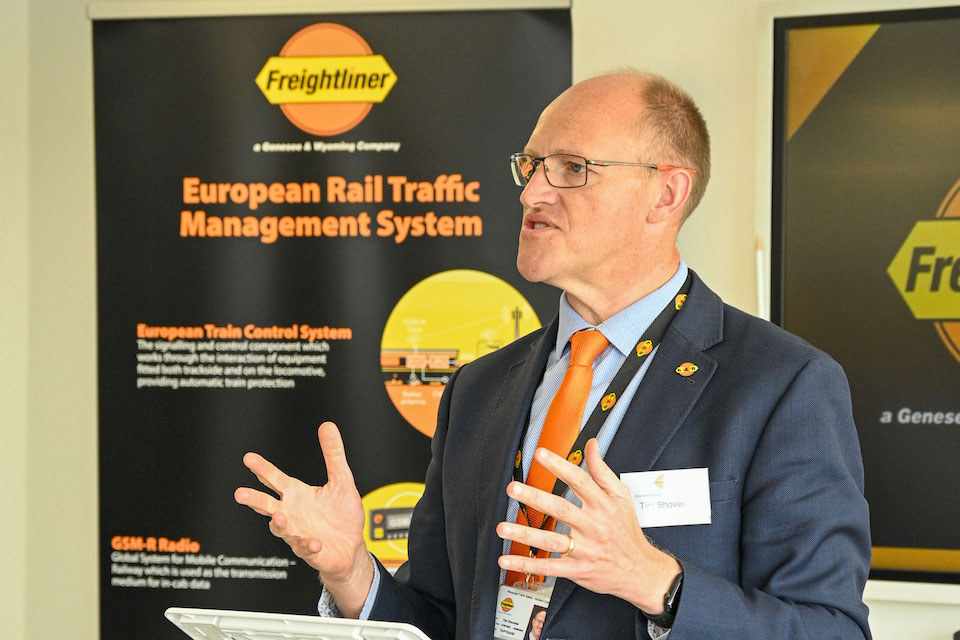Freightliner captures carbon one container at a time

The UK’s largest maritime intermodal logistics operator, Freightliner, has announced what they call a market first. Freightliner says their new ECO90 booking service allows customers to choose a carbon-reduced option for individual container movements by rail, beating the block train principle and offering a lower-carbon alternative for wagonload containerised goods.
Freightliner says it is the first UK rail freight provider to offer a more sustainable solution at a single container level. They say they aim to give customers, no matter their size or scale, complete flexibility and control to manage and reduce their own carbon emissions. Launched on 2 September, the ECO90 booking service offers customers the ability to move as little as one container across any rail route on a carbon-reduced service, utilising alternative fuels. Freightliner also has a significant fleet of electric locomotives, mainly repurposed from express passenger services.
The most sustainable options in the market
“We are incredibly proud to be the first in the market to launch our ECO90 service, which gives customers complete flexibility when it comes to moving goods sustainability,” said Tim Shoveller, Chief Executive Officer at Freightliner Group. “We already know rail is the most sustainable form of freight transportation, reducing carbon emissions by up to 76% when compared to road, but we don’t want to just stop there. We want to give our customers the most sustainable options in the market, and today, we are doing just that by offering up to a 90 per cent carbon saving on one single container rail movement with our ECO90 service.”

The UK has some of the most stringent carbon reduction frameworks of any country in the world. However, the vast bulk of goods mileage is still transported by road, using diesel power. The UK is not an outlier in that respect, but it is making significant efforts to attract freight onto the rails. The national infrastructure agency, Network Rail, only recently introduced an incentive programme, amounting to waived access charges for new freight flows.
Sustainable fuels and Scope 3 reporting
Moving by electric rail provides a carbon reduction of up to 90 per cent when compared with the equivalent movement via diesel rail. Freightliner says it also contributes to cleaner quality air in local communities while helping to create more sustainable supply chains. The Network Rail incentives may not apply to existing Freightliner flows. However, the ECO90 offer may well encourage new customers to use space on intermodal trains that may otherwise be underloaded – potentially backloading trains to ports, for example.

Freightliner also plans to use sustainable fuels on routes that are not electrified. Notably, that would include Felixstowe. “When customers book an ECO90 movement,” explains Freightliner, “the alternative fuels used will be backed by a product traceability certificate verifying the alternative fuel used is fully traceable and evidence of the materials used to make the fuel are from sustainable sources.”
Utilising Freightliner’s own Omnia reporting system, customers will also receive their own scope 3 carbon emissions report and certificate which can help to support their own carbon emissions reporting. “The launch of ECO90 booking forms part of Freightliner’s steadfast and long-term commitment to proactively reduce environmental impacts, become a net zero business, enhance ecosystems on Freightliner land as well as respond to climate-related risks and opportunities,” said the company.
You just read one of our premium articles free of charge
Want full access? Take advantage of our exclusive offer




